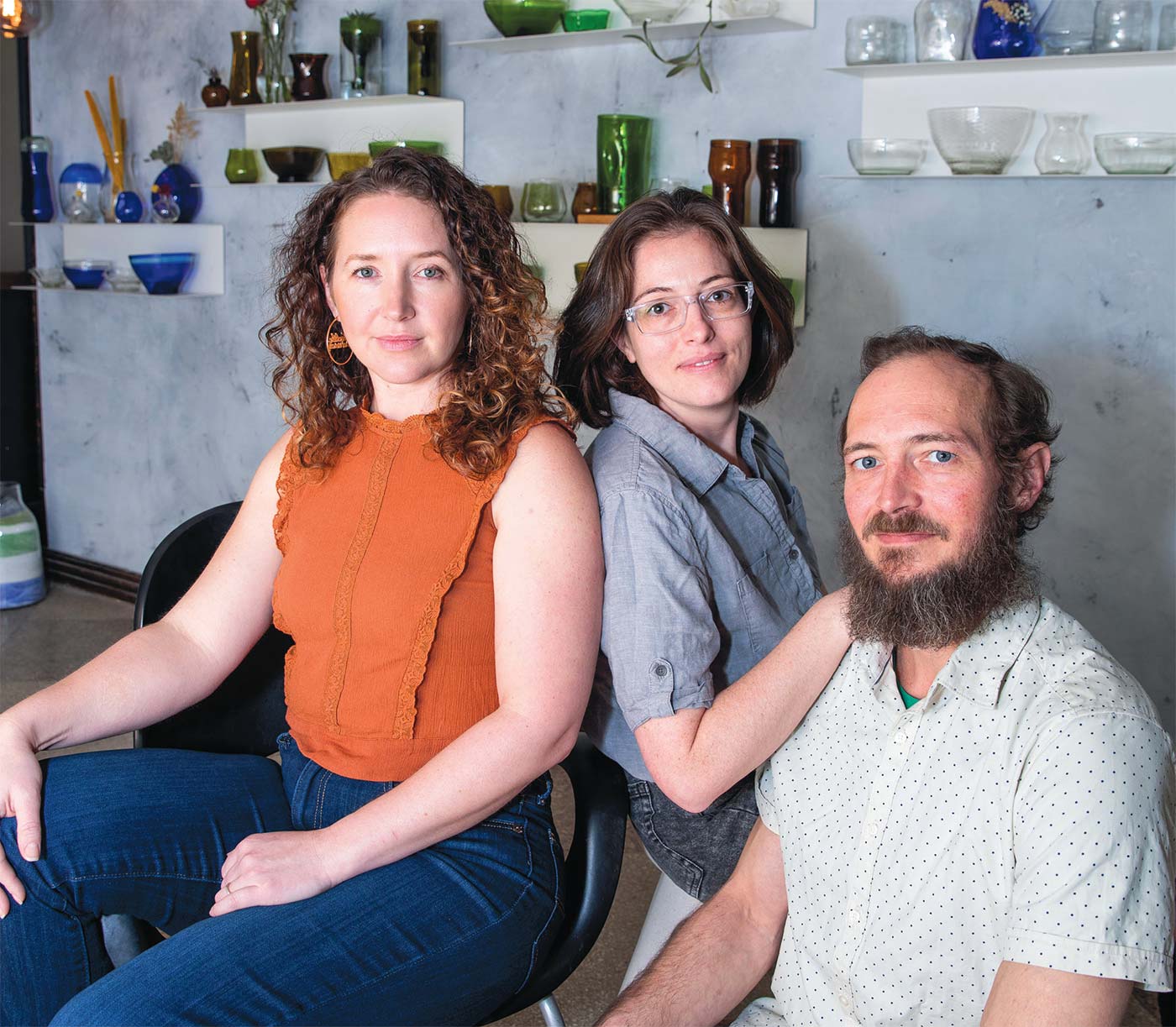Danielle Ruttenberg: Heart of Glass
AS A STUDENT at Tyler School of Art at Temple University, Danielle Ruttenberg had a chance encounter that would shape the rest of her life. During a sculpture course, she was detoured through the “hot shop” on campus, where graduate students helped the sculpture students by ladling lava-like molten glass into the molds they’d made for a project.
“Glass captured my heart then and there,” she says. “I thought, ‘This is too cool to pass up. I’m already paying to be in school here; I want to learn how to do this.’” That semester, she switched her concentration to glass art.
Years later, Ruttenberg still works with glass every day. As the founder of Remark Glass, she’s the creative force behind the tableware, barware, lighting, and accessories that have made the brand a runaway hit. Remark has pieces for sale in the Philadelphia Museum of Art’s gift shop.
But the fine craftsmanship of these works of art is only part of what makes the company special. Each piece is crafted from post-consumer glass that would very likely otherwise end up in a landfill. From the very beginning, Ruttenberg and her partners envisioned a glass-blowing studio with sustainability at its center.
To that end, they use none of the usual raw materials for glass making. These raw materials are made from components, including sand and silica, that are already in short supply. Instead, Remark collects used glass through its nonprofit arm, Bottle Underground, to give each container a second, third, fourth life—and beyond.
The original spark for Remark came from Ruttenberg’s conviction that glass tells a story.
“It really did start with our keepsake concept. A lot of glass in our lives has meaning to us,” she says. People often save wine bottles from special occasions or when they were gifted the bottle by somebody important in their lives. “I thought, ‘Well, it would be really cool if, instead of these bottles sitting on the shelf and collecting dust, this glass could be an active part of daily life.’” Remark can turn the champagne bottle from the night of your engagement into a serving bowl, so you can tell the story of the proposal every time company comes over. “That was the initial core of the business,” she says.
“It would be really cool if, instead of these bottles sitting on the shelf and collecting dust, this glass could be an active part of daily life.”
Demand for Remark glassware quickly grew beyond its bespoke keepsake commissions. They created bowls, glasses, and lighting that proved popular with interior designers, restaurants, and everyday people looking for something handmade for their home decor. Remark wasn’t collecting enough glass to keep up with this growth, so Bottle Underground was born in 2020.
“Bottle Underground allowed us to not only be impactful in terms of the amount of waste we are diverting from landfills, but it also made it more viable for ReMark glass to have a consistent supply,” she says.
Most people toss their glass into the recycling bin, believing it will be reused. Because of the way recycling is handled in Philadelphia, the glass gets crushed and mixed with microplastics and other contaminants, making it impossible to sort and recycle. Most of the glass thrown into recycling bins ends up as landfill cover—not what most people have in mind when it comes to recycling. To date, Bottle Underground has diverted more than 150,000 pounds of glass from the waste stream, according to Ruttenberg.
Remark’s commitment to sustainability extends beyond keeping perfectly good glass out of landfills. It’s about community as well. They have hired a dozen people who have barriers to employment, such as having been incarcerated. “They might not have formalized work experience, so we figure out what their interests are. Are they good with computers? Are they good at talking to people? We take some time to really understand and respond to that. So we do have people from every department,” says Ruttenberg.
It’s just one more way Ruttenberg and her partners Mark Ellis and Rebecca Davies have made Remark Glass more than a business—it’s a force for good in the Philadelphia community.




